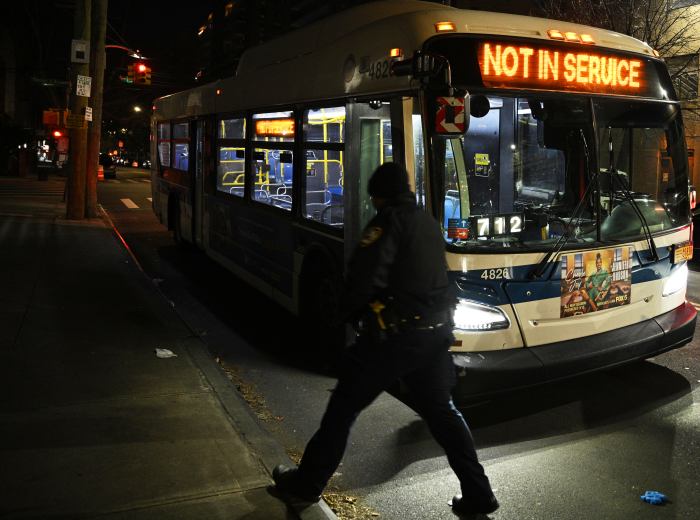By Bob Harris
The city’s neglect in enforcing the codes concerning dangerous sidewalks is endangering the health of those who walk our streets. While trees are valuable when they absorb water that could cause flooding, create oxygen and provide shade, their roots can push up slabs of sidewalk on which pedestrians can easily trip.
A few weeks ago my wife saw an elderly man trip on a raised sidewalk slab on 188th Street, just south of Union Turnpike. She saw the man limp away bloody. I called Community Board 8 to ask that an inspector be sent to make the homeowner fix this dangerous sidewalk.
When there was no repair this spring, I again called CB 8 and was informed that an inspector can give a citation, but there is no mechanism to make the homeowner fix the problem.
There are about eight raised and dangerous slabs of sidewalk south of Union Turnpike on 188th Street, and most are about 4 inches high.
I was informed that a citation is a lien against the house and the problem does not have to be corrected until the home is sold. Several years ago the city hired contractors to find and repair dangerous sidewalks and then bill the homeowners.
The problem was that people were receiving citations for 1/2-inch cracks and for 1/4-inch pieces of raised sidewalk. So many people complained that the city stopped trying to fix the uneven walkways, which are a hazard to the young, the old and anybody casually walking down our streets.
Some homeowners are cheap, but they fail to realize that they own homes worth $300,000 and $500,000. It is foolish for them, even if they do have insurance, to leave a dangerous situation in front of their houses, one that could lead to a lawsuit.
The city is liable if a city tree raises up the sidewalk slab, and I have read of some people who fought the city for years and won. But is it worth the effort, considering what could happen if someone were injured on their sidewalk? One of my neighbors just repaired a little problem as preventive maintenance.
I urge city officials to figure out a way to quickly repair these very dangerous sidewalks. There is a law that makes the city liable if a pothole causes damage to a car. Isn’t a person’s health more valuable than an automobile?
I have just become aware that the lot in front of the vacant, burned-out Happyman Cleaners on Union Turnpike and 184th Street has been posted by the owner, the Eastern Management Inc. Several signs have been placed on the boarded-up building. In average-sized print, people are warned that there is no parking 24 hours a day, 7 days a week and that cars parked here will be towed and returned after a fee of $108 is paid in cash.
This was the case about a week ago. People who had parked there to attend the special Holocaust services at nearby Hillcrest Jewish Center returned to find their vehicles gone or in the process of being removed.
A tow truck belonging to Eastern Management was hooking up a fourth car. One man jumped into his car and drove away, but four people had to go to the bank and take out $108 to retrieve their vehicles.
CB 8 checked on the matter. Councilman James Gennaro (D-Fresh Meadows), who had his own car towed, had also checked on the matter. The results are that this is legal. The owner can post his lot and then tow illegally parked cars.
One can question if the posted signs are too small. Why can’t large yellow signs be placed on the lot? Why can’t the lot be fenced in? CB 8 says there are no plans to build on the lot. Should and can the boarded-up cleaning store be left the way it is?
It makes the neighborhood look cheap. I informed the Union Turnpike Merchant Association that I feel people and their friends who pay the towing fee may decide they don’t want to shop in this area.
Will the owner be able to build stores here that can attract customers after people start to hate what is being done, or did the owner think he or she could make a lot of money from the $108 towing fee? And there are two large potholes in the lot that could be dangerous if someone falls in them.
It is ironic that people who innocently park in a lot where they have parked their vehicles after hours for decades are forced to pay a fine, but homeowners who leave dangerous sidewalks in front of their homes do not have to fix them or pay a fine.
GOOD AND BAD NEWS OF THE WEEK
As of this writing, the fares of our transportation systems are going up. The increased cost is hard on the average low-income working person.
The late leader of the transit workers union, Mike Quill, once called for a free transit system. Economically speaking, a free or low-cost ride might be very good for society, instead of trying to obtain money from the average working person through high fares.


































